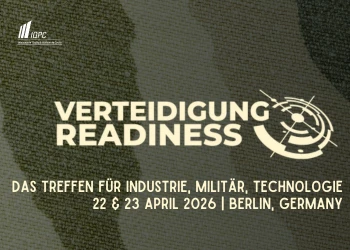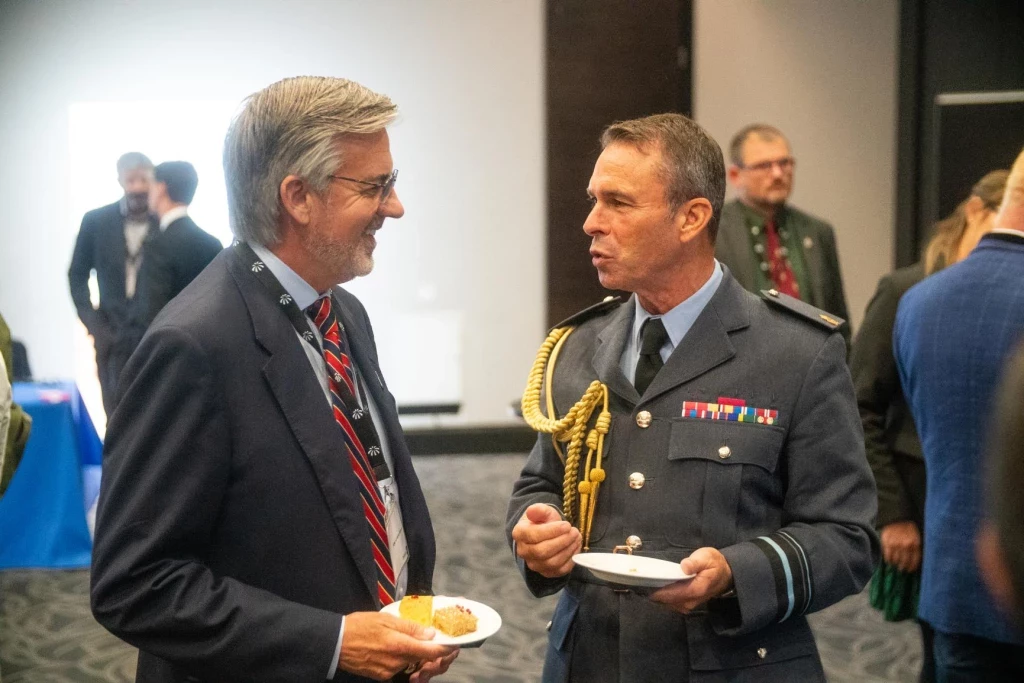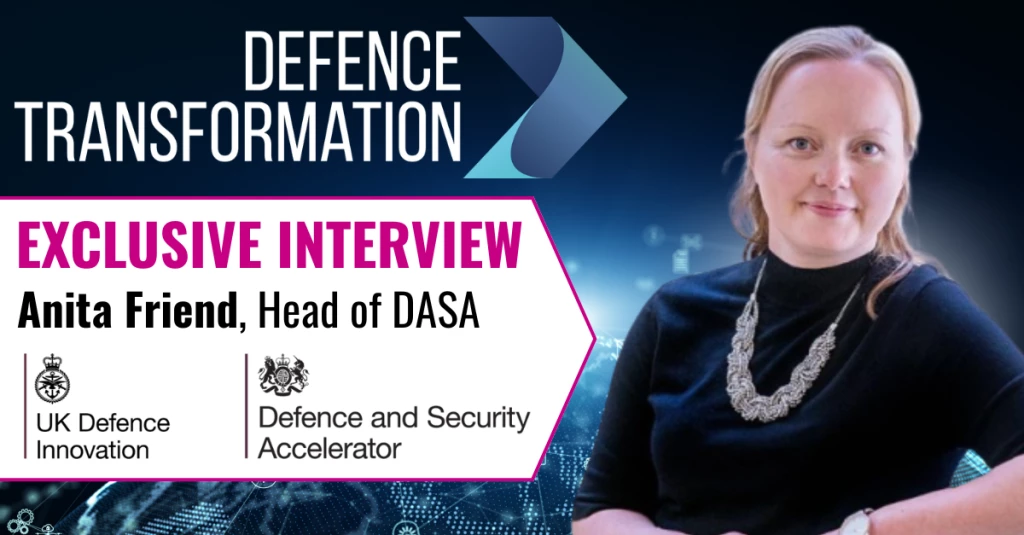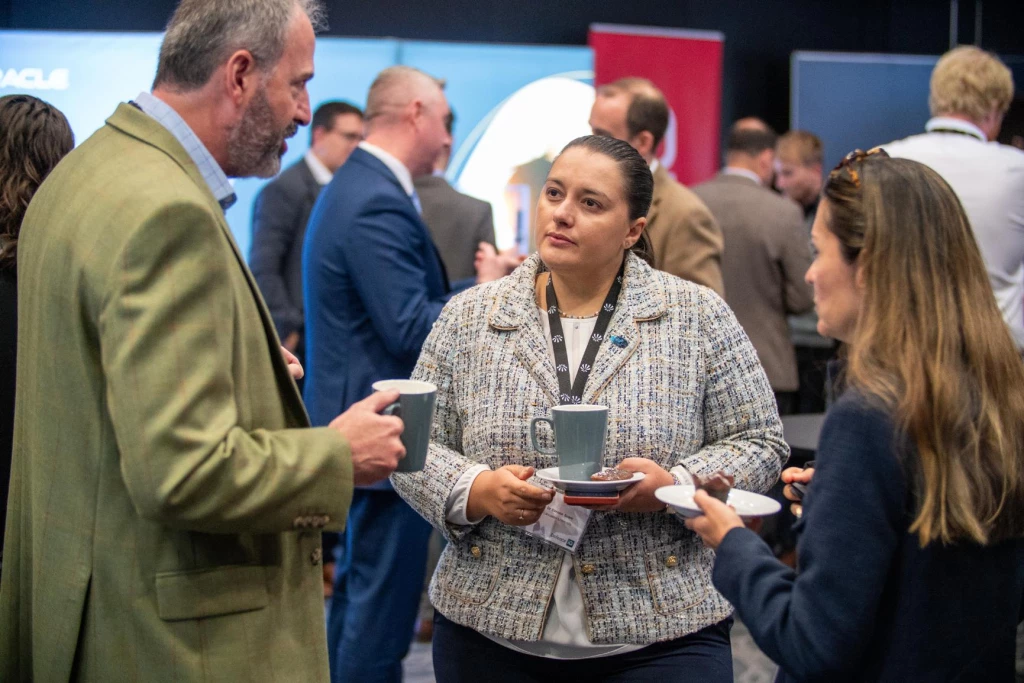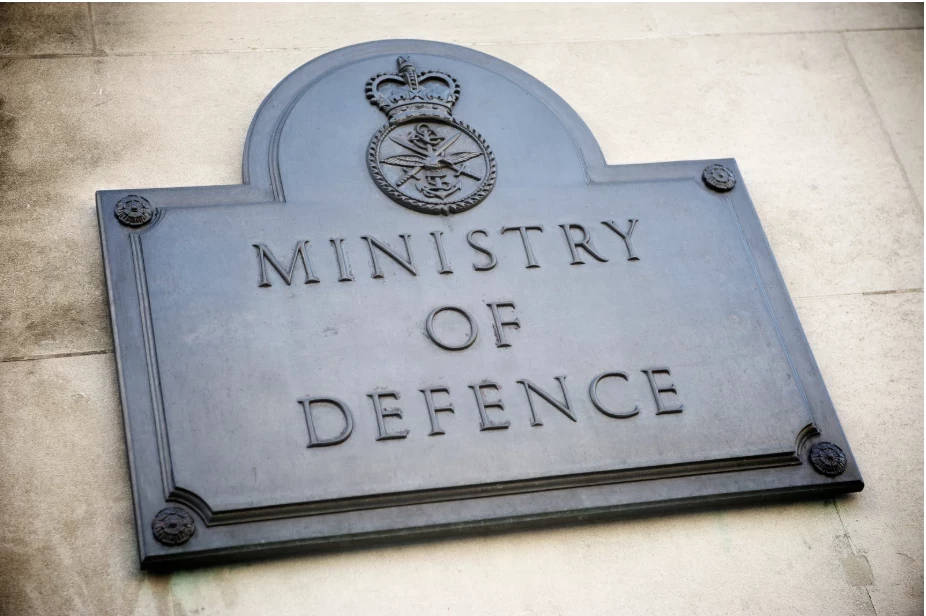From business as usual to business unusual: The changing shape of information operations
Add bookmarkSven Hughes, the Founder of Verbalisation Ltd, a consultancy designed to help people amplify their messaging and create communications strategies using behavioural science, recently gave a speech at RUSI in London on the changing shape of information operations. Here is a transcript of the speech.
I’d like to thank RUSI for the kind invitation to speak today, Neil Couch for agreeing to Chair this session and I’d also like to thank you all for taking the time to attend.
I won’t lie to you, this has been one of the hardest speeches I’ve ever had the pleasure of writing.
To try and answer the question: “how does the public sector provide a ‘fit for purpose’ national defence capability, without falling prey to an over-reliance on private sector providers?”.
This is a fundamental question at the heart of the UK’s current information operations, as well as our future capabilities. And it’s a question that contains an obvious conundrum…
An increased reliance on private sector providers runs the risk of undermining our centralised national capabilities – our public sector. If the skills, technology and accrued intelligence are located in the private sector, this could have obvious negative implications for the country.
But, a more centralised strategic communications structure risks damaging the UK’s existing private sector capability, which is bad for jobs and trade. Soft power is a valuable export after all.
There are forces pulling in opposite directions. The public sector’s necessarily slower speed of delivery, set against the private sector’s invariably higher costs.
The increased cadence of technology and enemy capabilities, set against the need for appropriate and considered interventions that align with our government’s strategic intent.
And all the while the UK’s need increases. The war of words against international terrorism grows more intense every day.
I have sincere respect for anyone in this room – whether from the public or private sector – who is currently wrestling with this dilemma, and trying to design an appropriate solution.
So, what can be done? Is there really such a binary between the public and private sectors? And is there perhaps a different way to approach the problem, to provide an entirely new kind of solution?
I believe there is.
I would like to first explore the reasons why the private sector in this country may now be willing to help counter DAESH recruitment and radicalisation messaging, without the usual associated costs.
This will draw attention to the urgent need for new working relationships and models to enable appropriate private sector support, guided by the relevant public sector authorities.
I would also like to outline a suite of specific ideas and initiatives that may provide the first steps towards this experimental new interrelationship.
But just to reiterate from the outset, I am not advocating further private sector involvement for their financial gain.
Rather, I assess that a tipping point may now have been reached. And that businesses, brands and private sector individuals may be willing to give of their time and capabilities, if not for reasons of national interest, then certainly for reasons of long term financial self-interest.
In preparation for this talk I have been speaking informally to representatives from various business sectors, captains of industry, NGOs, government influence professionals and former members of the military.
The suggestions within this speech are based on those conversations. What becomes quickly clear is not only the positive response from the interviewees, but also the extent to which their disparate ideas form a cohesive whole. A viable route map to success, with several interconnected waypoints.
I am aware that not every idea is entirely ground breaking on its own. But their combination acts as a force multiplier. And, to the best of my knowledge, none of these ideas are currently being actioned. Certainly not with any significant scale.
For sure, there are already some responsible private sector companies that are proactively involved in the fight against violent extremism within the UK. Facebook and Google to name but two. Both remove content that is likely to radicalise and both provide much-needed training to help key communities talk back to DAESH online.
Similarly, there’s The Online Civil Courage Initiative and The Counterspeech Lab bringing together NGOs and artists with advertising specialists to create innovate new counterspeech campaigns.
I’m sure we can all agree that this frontline work is a good thing. And it certainly seems to align well with the grassroots intent of the government’s PREVENT strategy.
But with the greatest respect to any of the existing private sector initiatives, they are limited in number and scope.
I’m interested to explore ways to activate more of this good work, by more of the private sector, more of the time – to deliver genuinely significant behaviour change against DAESH on a mass scale. To not just counter DAESH messaging within the UK, but to wholeheartedly overpower it.
So where do we start? Why would a commercial company and its employees want to help this cause?
Well, it is common knowledge that DAESH intends to attack the UK, and specifically London. They have tried repeatedly and they will try again. And a successful attack is, self-evidently, bad for business – bad for Brand Britain.
An attack has the potential to dramatically affect our businesses, our employees, our vital infrastructures and our tourism industry. It would have the potential to make our politics lurch inappropriately, as it has done in other European countries. It could destabilise our current economic conditions.
Business understands this and fears it, for good reason.
So whether it is phrased as a company’s corporate and moral responsibility, or simply as a business precaution, it is my assessment that the private sector would certainly understand the case and the need for their more-active pre-emptive involvement.
That’s not to say that they wouldn’t be concerned about the idea. Similarly, this has the capacity to make the public sector nervous. For fear that the private sector would begin meddling and doing more harm than good.
Countering DAESH recruitment messing is after all the direct responsibility of the likes of The Home Office, The FCO, RICU, the military, the police and The Security Services.
But let’s be clear, based on the available evidence, the very people these institutional stakeholders are trying to reach are often the people who are most resistant to any initiative or messaging coming top-down from government.
There are entire sections of our society that will resist anything that is government initiated, funded or supported. And if the government was to try and do all this necessary counter-DAESH messaging by covert means, without being named as the source, they would inevitably be labelled as Machiavellian – resulting in even more cynicism amongst key communities.
It is big business that has the people, the budgets and the capacity to assist, if they are only asked the right way, with the right business case - and then given the necessary advice and guidance to ensure the provision of useful and responsible support.
It is big brands that have the necessary reach and credibility among key communities. They may in fact be more likely to activate crucial groups within our society towards a genuine grassroots solution instead of, or at least in support of, similar PREVENT initiatives.
One just needs to look at the effect that Unilever is having in Nigeria by championing the issue of iron deficiency, using their Knorr brand. Or how Dove is helping to tackle the issue of self-esteem and body image amongst teenage girls.
While manpower issues, funding, negative perceptions and speed of delivery conspire against the public sector to be able to solve this issue in isolation, the private sector is in an ideal position to bridge the gap.
Not strategic communications firms. But day-to-day brands. FMCG brands, banking brands, supermarket chains, youth clothing… The underutilised and perhaps unlikely solution to a problem like DAESH.
So, how can these businesses and their brands be made to feel that they can do something to help? And what are the ways to ensure their help is both practical and aligned to the master behaviour change strategy?
At risk of stating the obvious, the structures needed to enable the public-private engagement I’m talking about here simply don’t currently exist.
For it to work, this solution would require a fundamental rethink on both sides of the equation. From the private sector, yes, but also the public sector.
Government bodies may need to park their suspicion of the private sector as being only in it for the money. And similarly business must not let the ‘terror’ of terrorism win in our post-Charlie Hebdo world.
I just hope, in the interests our our country, any such cynicism can be overcome. That the stakes are suitably high to force new working models and frameworks to be considered. And that ‘business unusual’ can at least be considered and tested alongside the ‘business as usual’ response to DAESH.
So, the first suggestion that came from the various stakeholder interviews concerned private sector companies leveraging the power of their brands to undermine the DAESH narrative.
DAESH is nothing without the oxygen of publicity. Like any brand, they are dependent on messaging and reach for their credibility. Put plainly, a suicide bomber is nothing more than a dead body if the media doesn’t promote the individual’s version of events: that they are a martyr, for a cause. DAESH relies heavily on media amplification to gain legitimacy.
The media networks are of course duty-bound to cover these stories. But an issue arises when certain media outlets fall into the trap of sensationalism in a chase for viewing figures. It has become quite normal for certain news channels to actively rebroadcast the DAESH propaganda far beyond its original limited reach. Because it is shocking and draws attention. And journalism exists in a competitive financial context where viewing figures drive advertising spend.
Surely it is time for commercial companies and their brands to begin to withdraw advertising funding from channels and online platforms that unnecessarily promote and rebroadcast DAESH propaganda?
I have no doubt that they would if it was racist, homophobic or misogynist content being rebroadcast. Consumers quite simply wouldn’t tolerate such brand behaviour and proxy endorsement.
This is one practical way in which business can directly counter the influence of DAESH in this country. By making an informed moral decision on behalf of their brands and hitting the irresponsible broadcasters where it hurts – in their bottom line advertising revenues.
I have no doubt certain channels will cry foul and complain that this is news censorship by another name. It is not. It is simply brands making robust choices about how and where their image is projected – in what context – and letting their money do the talking.
If the public is encouraged to consider brands in these terms, there will surely be swift action. Consumers can make brands change their behaviour. Brands can make news channels change their behaviour. And news channels can starve DAESH of its necessary propaganda oxygen.
The terrorists know what they are doing with their carefully packaged video press releases. It’s about time that brands woke up, assessed the evidence and took responsibility. And it’s about time that consumers held them to account.
To this end, perhaps there could be more positive reporting of any brand that goes about taking these matters into its own hands. This additional positive PR will likely drive sales, which in turn may inspire other brands to follow suit. Before long DAESH will find it difficult to get any airtime on the channels with real reach.
And quality journalism will also benefit from such an idea – as a result of additional advertising revenue diverted from irresponsible channels. A win for responsible brands. A win for responsible journalism. A direct negative impact on DAESH… And all at no extra cost to the taxpayer.
The second suggestion from the stakeholder interviews focuses directly on the online environment.
DAESH is reaching into the bedrooms and mobile phones of our disaffected youth. The online propaganda war is now as important as any kinetic activity. Al-Zarqawi made sure of that.
But our national response has been at best sporadic. Government is hampered by an unwieldy tender process using only a select group of firms to make a limited number of online pieces of counter-narrative content.
Meanwhile, DAESH pushes out a reported 38 new items of online propaganda, every single day, 365 days a year. No matter how industrious the government response, it will fall short if left unsupported.
One thing the government may wish to do is examine whether their current tender process is really appropriate for the modern world. However, meantime, there is another way to approach this.
There is an apparent need for an online hub where the private sector can upload proactive counter-DAESH content anonymously, for use by the various government bodies and NGOs that are engaged in this information war. Free content: gifted by the private sector to the cause.
I am talking here about marketing and design companies, recording studios, cartoonists and similar private sector influence professionals.
Advertising creative teams being given permission by their bosses to use their downtime proactively to support this effort.
Why? Because they enjoy the creative challenge. Because they feel a duty to public service. Because our creative industries already have a proud tradition of giving in-kind support to charities and NGOs.
Our industry thought-leaders and CEOs have it in their power to make it as fashionable to take a creative stand against DAESH, as it is to take a stand against famine, breast cancer or third world debt.
If government would provide the online hub, then the private sector would have somewhere to upload their content. Donating their downtime to the cause. For international CVE charities and NGOs to distribute as they see fit.
If the government feels that they can’t, or shouldn’t, host the hub themselves, it would be interesting to see which private sector companies may wish to provide this platform, for the greater good. Again, another direct way the private sector could deliver tangible support right now, in new ways.
The third idea from the stakeholder interviews relates to employee groundswell.
There are millions of employees in the UK sitting in front of computers with a lunch hour to spare. This is a phenomenal resource to monitor, disrupt and even overwhelm the distribution of online DAESH material if only properly directed. Out-distributing DAESH is the kind of quick-win that private sector staff could easily provide. And it requires nothing more than a ‘comment’, a ‘retweet’ or a ‘like’.
For example, if it was the government’s wish to actively reframe DAESH as just simply “criminals”, and not even give them the luxury of describing themselves in terms of their religion, the private sector could be a useful ally to promote this new language on a mass scale. A groundswell of the willing on Facebook and Twitter. At no cost, but to great effect.
To achieve this is as simple as pinning up a poster in a company’s canteen with an invitation to take part. And if the government feels it can’t action such an initiative, this could be a role for the The British Chamber of Commerce, The IoD or the Federation of Small Business. To reach out and engage the private sector with guidance – and that all-important sense of responsibility.
It makes me think of the Michigan Cyber Civilian Corps that organised itself in America to respond to cyber attacks. Described as somewhere between “a volunteer fire department and the national guard”, I believe they have inspired the the Department of Homeland Security to consider creating a similar, official, cyber reserve.
There are so many people in this country with the skills and time to make a difference. To react quickly online, with scale, in a coherent way – guided by an overarching strategy. And reaching them through their workplace – with the blessing of their bosses – is certainly a new route for the public sector to consider.
The fourth idea that came from the interviews is perhaps the most significant.
And this one is particularly close to my heart as my company recently created content for the FATE charity network – Families Against Terrorism and Extremism.
This idea focuses on how the private sector can help ensure that families are as effective as possible in the fight against DAESH.
The dinner table, the sofa in front of the TV: these are often the real front lines against recruitment and radicalisation. Behind closed doors, where families talk and parents work their subtle magic.
If the private sector can reinforce this area, the positive impact could be considerable.
- By teaching parents how to better-use new their technologies to safeguard their children against DAESH messaging
- By providing free support and resources to parents who are worried their children are already being radicalised
- Maybe by providing one extra page on their brand websites; dedicated to this cause
- Or by retweeting the occasional charity or NGO message to their huge online customer audiences
The opportunities for private sector involvement are legion. I use this talk today to appeal to the big family brands to consider if they are really doing all that they can to help with this most important issue. If they are really supporting the mothers and fathers who also regularly buy and use their brands and products.
Imagine if Unilever gave support in this area. Or P&G. Or Nestle. Or Asda. As an additional pillar to their existing community outreach programmes.
I understand that big brands may not wish to provide overt counter-DAESH messaging. But what about a focus on the positive alternatives instead?
By providing more overtly positive young Muslim role models within their marketing material. Aspirational and culturally sensitive antidotes to the current media negativity and scaremongering.
Brands really can show the way. Providing hope and opportunity at the grassroots level. By honestly reflecting and countering the disaffection and pressures faced by many of our youth - the very same levers that DAESH uses to create division.
DAESH’s divisive arguments will gain less traction if there is a more positive demonstration of intent from brands in this regard.
Whether this takes the form of football academies, skills training, young entrepreneur initiatives – there are so many ways for many more private sector companies and brands to actively participate and make a difference, where it matters.
I use this speech today to call out to these brands and their respective marketing agencies to give this issue some careful consideration.
But again, recognising that this relies on public sector guidance – and the wider repositioning of counter-extremism initiatives from being an intimidating fringe issue, to the acceptable and necessary mainstream.
Again, this fourth initiative would come at no additional cost to the taxpayer but would certainly align with the country’s wider grassroots counter-DAESH messaging strategy.
So, that’s four ideas that were co-created by people who currently aren’t part of the fight against DAESH, but who were positively engaged when asked.
In combination, these ideas could create a degree of positive momentum. Bringing the private sector to bear in new ways to overpower the malevolent DAESH threat that is already at work in pockets of our society.
These ideas will certainly not solve the problem alone. But they may help set a course.
Because although DAESH can never be underestimated, they should never be overestimated. They are fallible because we can choose to reject the ‘terror’ in terrorism. Guided by our moral and commercial obligations – we can choose to take responsibility and action. As businesses, as brands, and as employees. In support of our government yes, but also in defence of the stable society and financial context in which we do business.
DAESH will not imagine that the private sector could or would do this. Which is exactly why we should.
Here in this room today I know we have representatives from the private sector, the public sector as well as interested journalists. All the necessary ingredients to make any of these ideas a reality.
I do hope that business cards will be swapped and meetings arranged so that we can collectively work as a team and find new ways to overcome the influence of DAESH on these shores.
Thank you for your time.



